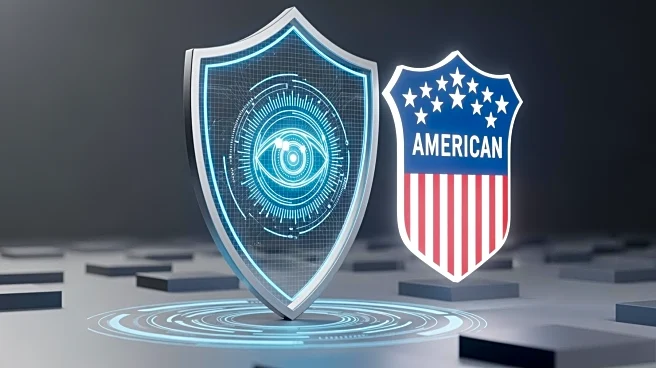What's Happening?
National Cyber Director Sean Cairncross emphasized the need for the United States to counter China's efforts to export a surveillance state globally. Speaking at the 2025 Meridian Summit in Washington, D.C., Cairncross highlighted the importance of promoting
a 'clean American tech stack' to international partners. He criticized the U.S. for not effectively signaling to China that its behavior in cyberspace is unacceptable, noting that Chinese actions threaten U.S. critical infrastructure and strategic stability. Cairncross's remarks align with his broader focus on strengthening the Office of the National Cyber Director (ONCD), a role established by Congress following recommendations from the Cyberspace Solarium Commission. The successor to the commission, CSC 2.0, recently recommended enhancing the ONCD's authority to fulfill its mission.
Why It's Important?
The emphasis on countering Chinese surveillance and promoting American technology reflects broader geopolitical tensions and the strategic importance of cybersecurity. China's actions in cyberspace pose significant risks to U.S. infrastructure and decision-making processes, potentially leading to economic and national security vulnerabilities. Strengthening the ONCD could enhance the U.S.'s ability to respond to these threats and assert its technological leadership. This initiative could benefit American tech companies by opening new markets and partnerships, while also safeguarding national interests. However, it may also escalate tensions with China, impacting diplomatic and trade relations.
What's Next?
The ONCD is expected to focus on establishing its role as envisioned by Congress and the executive branch. This includes implementing recommendations from CSC 2.0 to enhance its authority. The National Security Council under President Trump is reportedly supportive of giving the ONCD the necessary space to operate effectively. Future actions may involve developing a comprehensive national cybersecurity strategy with clear directives and follow-on action items. Stakeholders, including policymakers and tech industry leaders, will likely monitor these developments closely, as they could influence U.S. cybersecurity policies and international tech collaborations.
Beyond the Headlines
The push for a 'clean American tech stack' could have long-term implications for global tech standards and alliances. By promoting American technology, the U.S. may influence international norms and practices in cybersecurity, potentially leading to a realignment of global tech partnerships. This initiative also raises ethical considerations regarding digital sovereignty and the balance between security and privacy. As the U.S. seeks to counter Chinese influence, it must navigate these complex issues to maintain credibility and foster trust among international partners.
















